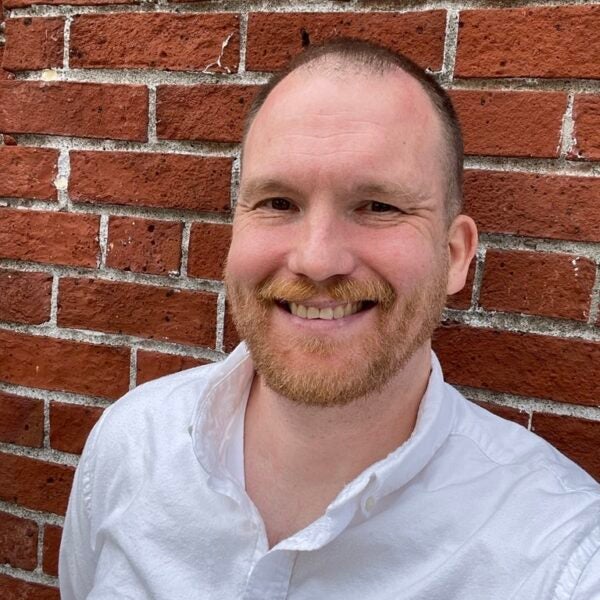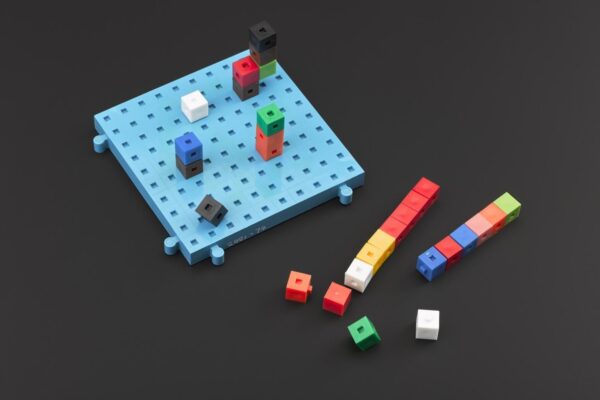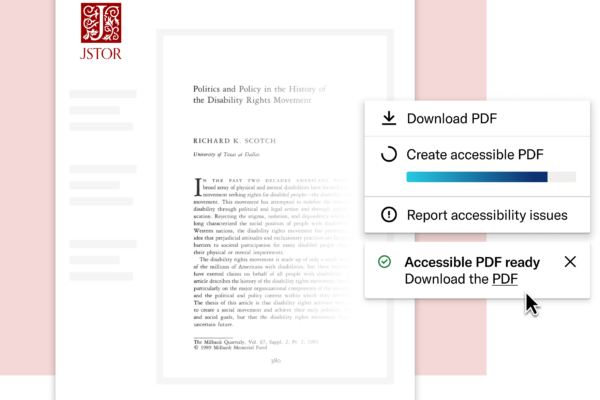
JSTOR Access in Prison Second Chance Essay, “The Educated Loner” by Allen Ivanov
About the author
Allen Ivanov is a writer incarcerated in Washington.
The Educated Loner
I let out an audible exhale, finally catching a break from my studies. My desk looks like the epicenter of an academic hurricane: mounds of paper form peaks and valleys, and books lie splayed open like casualties. I’ve lost track of time, and before I can get up for a much-needed break, a sheet of paper dangling off. to the side catches my eye. Call for Submissions… Reclaiming Identity Through Learning… How has education changed how you think about or view the world around you? I hadn’t seen this paper before—much less a clue to how it ended up on my desk—but the question had seized my mind as I went about my day.
I’m a college student—in prison. Education has reshaped not only my understanding of the world but also my place within it. It’s given me the courage to confront my past and the hope of a future not yet written. Studies show time and again that education is the strongest factor in slashing recidivism. But rarely do we speak of the hidden toll—the silent burdens, the unseen costs—of pursuing a postsecondary education in a place like this.
Higher education has rendered me a minority behind these walls. While the physical distance between me and other prisoners hasn’t changed, I’ve never felt more detached, more estranged from the world around me. Gone are the days when gambling over sports or playing cards brought me joy. The once delightful ritual of cooking elaborate meals with the guys, meals whose levels of added sugar and sodium would make even the most lenient of dietitians nervous, lost its charm after an introductory course in nutrition. I’ve also grown disinterested in participating in the frequent bouts of storytelling, where misogynistic tales of abuse and degradation of women are met with collective laughter and approval. I can’t tell you, however, how hard it is to find someone who shares an interest in analyzing Shakespeare. It turns out that discussing Hamlet while strolling the yard apparently isn’t a popular pastime.
But that’s the whole point: in prison, intellectual pursuits aren’t particularly valued. I’ve been told that I’m merely “book smart,” too smart for my own good, and that my life sentence renders education futile. And it’s not just other prisoners who view my efforts with disdain: corrections officers often perceive it as some kind of threat, finding it necessary to remind me of my predicament. As I work towards my bachelor’s degree—knowing it surpasses the educational attainment of most of them—I’m constantly reminded that no matter how educated I become, I will always be seen as a murderer. There’s no prison quite like being shackled to the past.
The present isn’t so much better. On most days I feel a heavy weight pressing down my chest and a scream trapped in my throat. The more I learn about systemic injustices, inequalities, and historical and present-day oppression, the more unbearable the pain becomes. The pain follows me to sleep, where I often wish I could unlearn what I’ve discovered. When I’m awake, it hangs in my clothes and casts a shadow over my days, leaving me in a tug-of-war between the adage that knowledge is power and the notion that ignorance is bliss. And when I survey the world around me, I see an existence steeped in indifference, where the most pressing matter on any given day seems to be which team scored the last touchdown. And then there’s the laughter, which echoes through the walls and fills the housing unit with a sense of ease I can no longer share. The truth is, I’ve come to secretly envy the comfort of that ignorance. I wish I wasn’t so serious all the time.
Of all the lessons education has taught me, the hardest is that growth comes at a cost. It peels away old illusions and unearths uncomfortable truths. But if it’s to be a weight, it’s also a set of wings. Education has carried me beyond these concrete walls, beyond the labels imposed on me, beyond the life I’ve once lived. It’s given me the power to rewrite the narrative of who I am, and even if society refuses to turn the page, I will continue to hold a pen and, with quiet defiance, spill its ink. And that, in itself, is a kind of liberation.
View Allen’s full submission (PDF)
From the editor
by Ryan McCarthy
“It turns out that discussing Hamlet while strolling the yard apparently isn’t a popular pastime.”
It’s surprising how many writers and intellectuals have done time. Henry David Thoreau, Bertrand Russell, Antonio Gramsci, Alexander Solzhenitsyn, and a host of others. Hell, even Socrates had a trial, and we might well call him the patron saint of troublesome intellectuals, if he wouldn’t have been so resistant to being sainted. Prison affords time to think, if little else. The library might be mostly westerns and the writing materials limited to weird little flexible pens that can’t be used to stab people or pencils that you’d have to sharpen by scraping them across the floor and picking the wood away with teeth and fingernails, but there is time to think.
And yet I found prison a hard place to think. A hard place, full stop, but especially hard for the life of the mind. The noise, the chaos, the work, the constant awareness of being watched, the fear that at any moment what little peace there might be will be overturned and thrown into chaos by a lockdown, a fight, an inspection, a trip to confinement. The two things I most needed for intellectual pursuits were missing: solitude and community.
There’s a certain irony in needing two contradictory things and somehow finding both absent. Solitude is largely impossible in prison. Most of my time inside was spent in dormitories with 70 or so men in rows of bunk beds. Big open rooms, always full of activity. Even when I was in a cell, I was seldom alone there. I always thought solitary confinement would be, well, solitary. But it wasn’t. It was mostly twenty-three hours a day in a room trying to tune out another guy who wouldn’t shut up, possibly because he was trying to drown out the sound of twenty other guys yelling across the cells. It can be hard to find a few moments of quiet, let alone hours to think through something challenging.
Even though it’s impossible to be alone, it can be surprisingly hard to find community on the inside. There are all sorts of groups to get involved with, focused on anything from bible study to working out. That makes it sounds as though there’s a wide range of possibilities, but more often than not, it’s actually just those two. I never found a group of people to talk Shakespeare with. Even the nerds playing Dungeons & Dragons were mostly looking to escape into a fantasy world where they had real power for a change. And I don’t blame them. Really, I should say I don’t blame us, because I was absolutely one of them. But no one was reading Shakespeare, let alone Shakespeare Quarterly or other academic journals.
I felt that loss of an intellectual community keenly, and struggled to maintain it in overpriced phone calls and letters to friends and family. I might be one of the only people to have written a letter from prison with a works cited page, and to have received something similar in return. I kept those small moments of connection close to my heart. They’re still with me today, nearly a decade since I stepped out past the razorwire fence. I didn’t become a prolific writer or a great thinker while I was locked up, but it’s possible at least that I didn’t come out a worse man either, and I consider that a victory.
The opinions and views expressed in these recordings, art, and posts are those of the authors and do not represent, reflect, or imply endorsement by ITHAKA.



